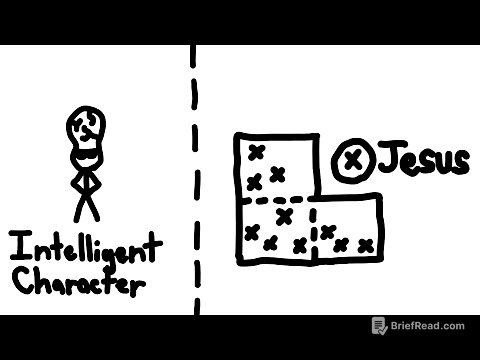TLDR;
This video discusses the postponement of the old rent amendment by the House of Representatives and its potential implications. It highlights concerns that delaying the law could harm both owners and tenants, leading to disputes and court cases. The speaker emphasizes the need for a fair resolution that considers the needs of all parties involved, especially the vulnerable elderly population.
- Postponement of old rent amendment is not in the interest of the elderly.
- Delaying the law could harm both owners and tenants, leading to disputes and court cases.
- The speaker emphasizes the need for a fair resolution that considers the needs of all parties involved.
Introduction [0:00]
The speaker addresses the decision by the House of Representatives to postpone consideration of the old rent amendment. He notes the reactions to this decision, questioning whether those celebrating the postponement are fully aware of its implications for both property owners and tenants. The speaker aims to clarify the situation and discuss the potential consequences of not addressing the issue promptly.
Concerns About the Postponement [0:21]
The speaker refutes claims that the issue is permanently resolved, clarifying that the session has only been postponed. He argues that delaying the amendment is not beneficial for the elderly and vulnerable populations, despite claims made by some representatives. The speaker questions whether representatives fully understand the implications of their actions, especially in light of the Supreme Constitutional Court's guidance on the matter.
The Role of the Supreme Constitutional Court [2:11]
The speaker emphasizes the role of Counselor Boulos Fahmy, President of the Supreme Constitutional Court, in setting a timeline for the law's issuance. Fahmy aimed to prevent conflict between owners and tenants by addressing the unconstitutionality of fixed rents and the need for fair market value assessments. The speaker criticizes the current situation where the issue is being delayed, potentially leading to increased disputes and court cases.
Potential Consequences of Delay [3:26]
The speaker warns of the potential for increased legal disputes if the law is not issued. Owners may seek to evict tenants based on the constitutional ruling that fixed rents are unconstitutional, leading to court battles and expert assessments of fair market value. This situation could disproportionately affect ordinary citizens who cannot afford increased rents or legal fees.
The Prime Minister's Stance and Concerns [5:15]
The speaker references the Prime Minister's speech, which mentioned a gradual liberalization of rents over seven years, with support for those unable to afford increases. However, the speaker notes that this proposal did not satisfy some representatives who fear it will put pressure on people. The speaker argues that delaying the law will ultimately lead to more evictions and court rulings based on the Supreme Constitutional Court's decision.
Call for Foresight and Social Harmony [6:48]
The speaker urges a more forward-thinking approach to the issue, cautioning against celebrating the postponement. He argues that delaying the law is against the tenant's interest and fuels social unrest. The speaker appeals to everyone to consider the matter conscientiously, emphasizing that the goal should be to promote social peace and protect the interests of all parties involved.









